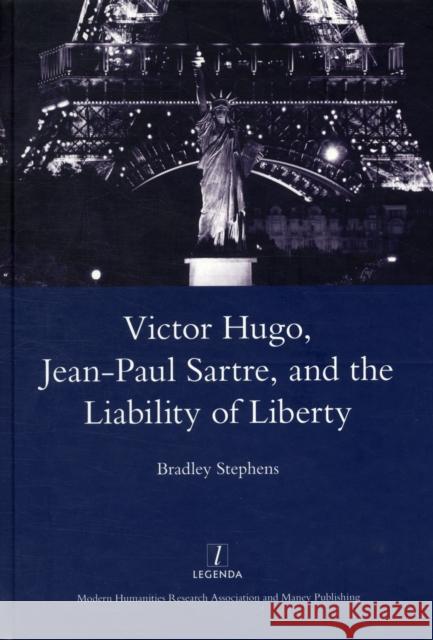Victor Hugo, Jean-Paul Sartre, and the Liability of Liberty » książka
Victor Hugo, Jean-Paul Sartre, and the Liability of Liberty
ISBN-13: 9781907747014 / Angielski / Twarda / 2011 / 184 str.
Victor Hugo, Jean-Paul Sartre, and the Liability of Liberty
ISBN-13: 9781907747014 / Angielski / Twarda / 2011 / 184 str.
(netto: 674,98 VAT: 5%)
Najniższa cena z 30 dni: 653,11
ok. 16-18 dni roboczych.
Darmowa dostawa!
The arch-Romantic Victor Hugo (1802-85) and the Existentialist philosopher Jean-Paul Sartre (1905-80) are widely perceived to have little in common beyond their canonical status. However, responding to Sartres often overlooked fascination with Hugo, Bradley Stephens cuts through generic divisions to argue that significant parallels between the two writers have been neglected. Stephens argues that both Hugo and Sartre engage with human being in distinctly non-ontological terms, thereby anticipating postmodernist approaches to human experience. From different origins but towards similar realisations, they expose the indeterminate human condition as at once release and restriction. These writers insist that liberty is not simply a political ideal, but an existential condition which engages human endeavour as a dynamic rather than definitive mode of being. This incisive new book affirms the ongoing relevance of the two most iconic French writers of the modern period to contemporary discourse on what it means to be free.











